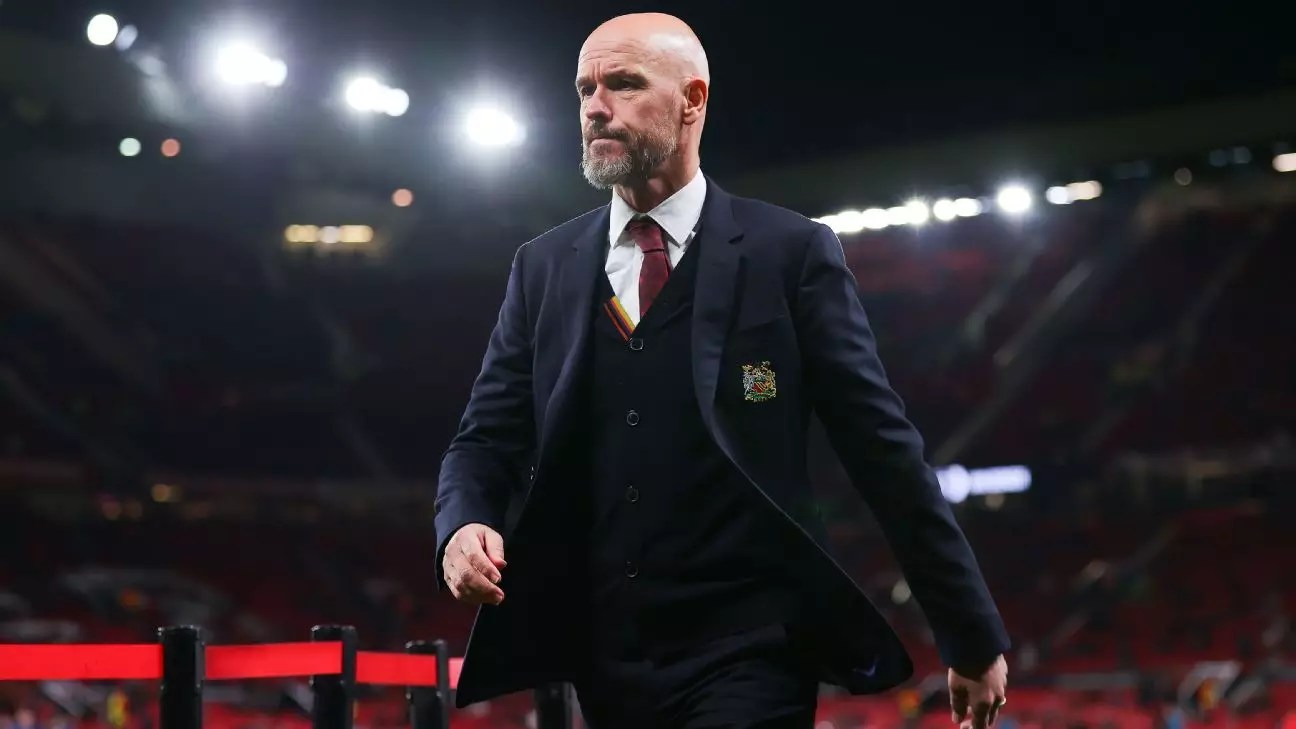Manchester United’s identity has long been intertwined with a history of greatness in European football. The club has nurtured a reputation that inspires dreams of lifting the UEFA Champions League trophy. However, their recent stint in the UEFA Europa League, highlighted by a lackluster draw against FC Twente, starkly contrasts that ambition. The disappointing result reflects deeper issues within the club, revealing a side struggling to maintain its elite status amidst mounting pressures and challenges.
In the match held at Old Trafford, the atmosphere was electric, yet the outcome fell short of expectations. Manchester United, despite starting the game strong, exhibited a lack of decisive execution. Twente, positioned low in their domestic league, celebrated the draw as if it were a monumental victory. This unexpected turn of events should serve as a wake-up call for the Manchester United management, as it stirs questions about the fundamentals of their tactical approach and player performances.
Erik ten Hag finds himself at a crucial juncture in his managerial career at Manchester United. With the specter of Europa League involvement looming large, the stakes have never been higher. The burden of steering the club back to its former glory weighs heavily on his shoulders, especially in light of the glaring inconsistency displayed on the pitch. After finishing eighth in the Premier League last season, the need for tangible results is urgent.
As Ten Hag assessed the situation post-match, he acknowledged the necessity for the team to exhibit a fighting spirit comparable to that of FC Twente. A sobering realization emerged: the essence of competition requires a relentless pursuit of victory – a principle Manchester United seemed to overlook during this fixture. The manager’s admission that “99% is not enough” encapsulates the mindset that must be nurtured within the squad. Furthermore, the increasing scrutiny of Ten Hag’s methods could only intensify should performances not improve in subsequent fixtures.
One of the most glaring issues in the recent match was Manchester United’s inability to convert opportunities into goals. Despite amassing 19 shots, only Christian Eriksen’s solitary strike found the back of the net. This apparent inefficacy in front of goal highlights a critical area for improvement as they navigate both the Europa League and the Premier League. With just five goals in five league outings, the club’s lack of offensive prowess is becoming painfully evident.
Ten Hag’s reflections on the need for more clinical finishing reveal an understanding that transcends mere responsibility; it encapsulates a broader call for mentality adjustments. The notion that players must cultivate a killer instinct in critical moments offers a blend of tactical insight and psychological encouragement. If Manchester United hopes to reclaim their status, they need to forge a team characterized by efficiency and a relentless desire to dominate opponents fully.
While many might view participation in the Europa League as a setback for a club of Manchester United’s caliber, it inherently presents both challenges and opportunities. The new league phase format can pave the way for potential success, yet it demands a concerted effort to excel in each match. The club will have to rally together to create a formidable presence in the competition, especially when performances in the Premier League dictate the overall trajectory of their season.
The absence of teams dropping from the Champions League in the newly formatted tournament could play into United’s favor. Nonetheless, the road to lifting the trophy requires a series of consistent performances and strategic victories. As noted, winning the Europa League may, in theory, necessitate fewer wins than achieving a top-four finish in a fiercely competitive Premier League. However, this perspective must be coupled with a firm commitment to performing at a level that befits one of Europe’s storied clubs.
Ultimately, Manchester United’s current position requires a balancing act between immediate results and long-term aspirations. Each match serves as a crucial step towards rebuilding the club’s identity and reputation. With Erik ten Hag at the helm, successful management of Europa League commitments may well influence how the season unfolds. However, overcoming the challenges posed by rivals within their domestic league remains paramount.
As Manchester United embarks on this journey through the Europa League, the commitment to excellence must overshadow the disappointments of the past. Should Ten Hag capitalize on the opportunities presented by this season’s competitions, the prospect of restoring Manchester United among the elite seems increasingly attainable. However, it is a long road ahead, filled with rigorous challenges that will ultimately define the legacy of this squad and its manager.


Leave a Reply